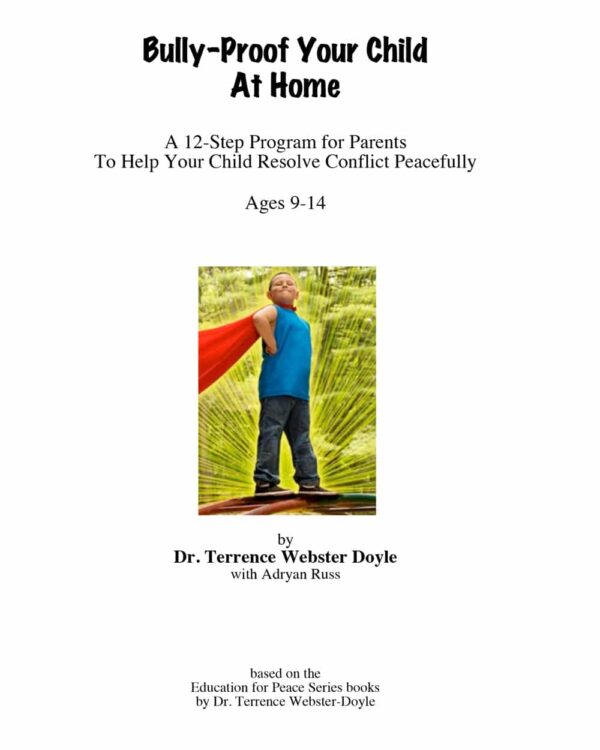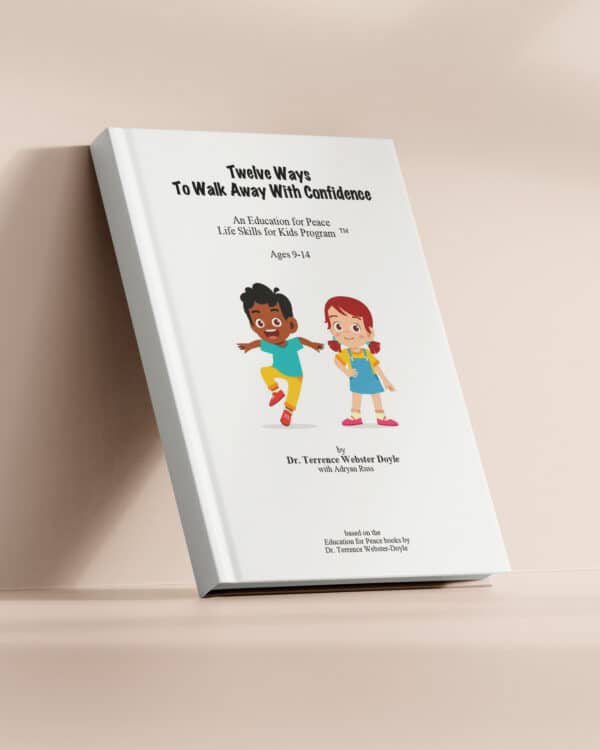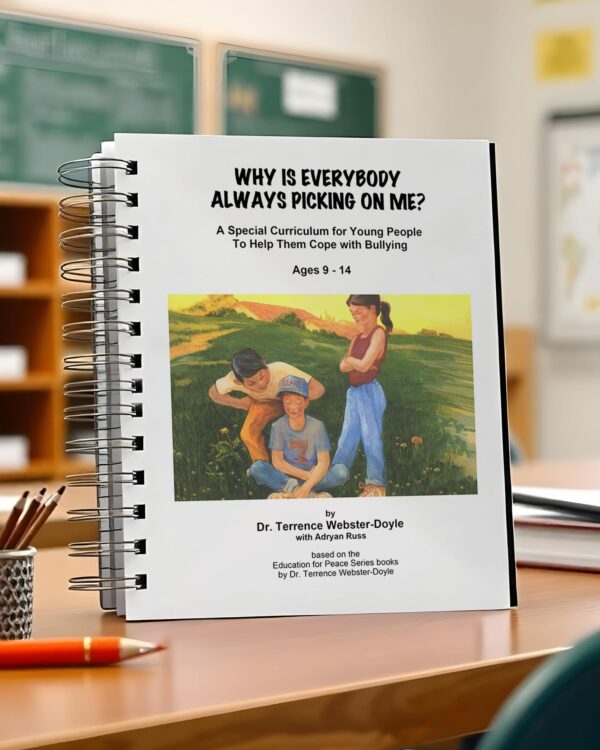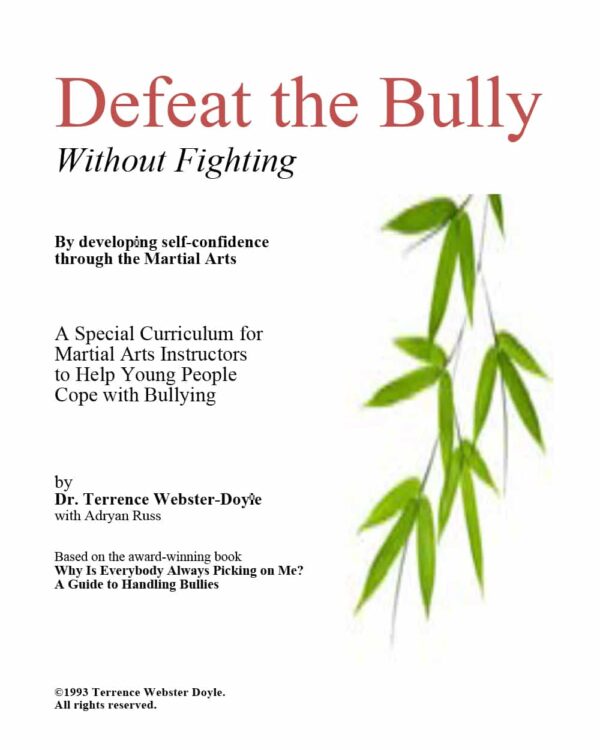Episode #2: Immediate Effects of Bullying & What to Watch For
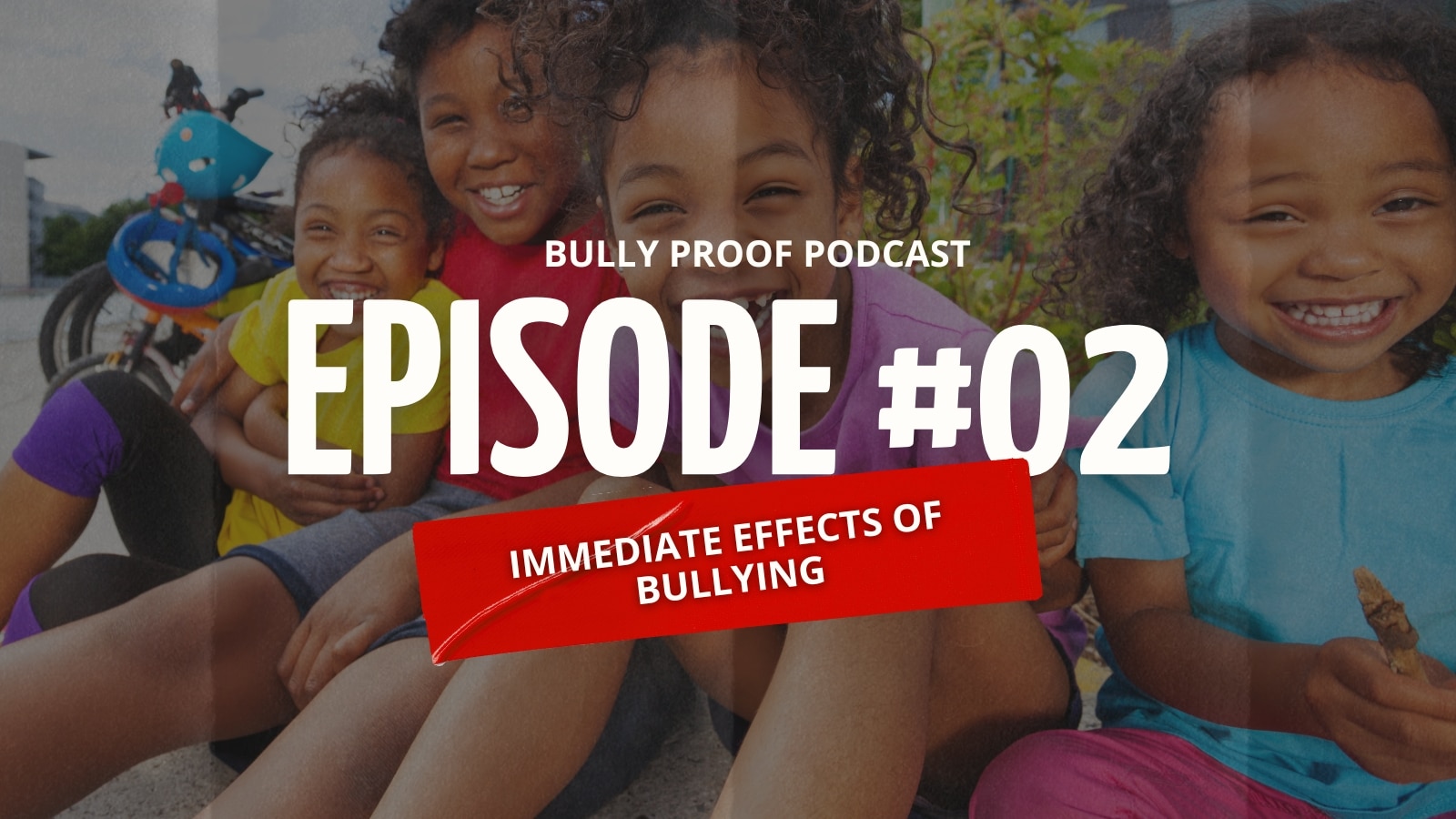
Welcome back to Bully Proof Your Child podcast! In this episode, we’re diving into the immediate effects of bullying and why it’s so important to recognize the early signs. Whether you’re a parent, teacher, or caregiver, knowing what to watch for can make all the difference in helping kids feel safe and supported.
We’ll explore how bullying shows up emotionally, physically, and socially and why these impacts can happen faster than you might think. From changes in behavior to struggles at school, these are the first warning signs that kids need our attention.
We’ll also share practical ways to support kids, open up conversations, and build their confidence to handle tough situations. And don’t worry, we’ve got plenty of actionable ideas to help you along the way.
If you’d rather read than listen, the full transcript is below.
Podcast Transcript
We’re here today with the Bully Proof Podcast, and we’re going to talk about the immediate effects of bullying. There are lots of things we can watch for so that parents, teachers, and any adult caregiver can help spot some of these first signs of bullying that kids might be experiencing. But, quite honestly, these are things that can affect adults too, so we can be looking out for this, even though we’re focusing mostly on kids today.
We do have a blog post all about this, too. So I’ll pop that in the show notes so that if you’re interested in reading a bit more about this, you can hop over there to check it out.
I figured the first one we could talk about today is the emotional effects of bullying and how it affects kids. I think we often think about physical effects, so I wanted to start a little bit more on the emotional ones, and we can get into physical a little bit later because these things can start affecting kids right away.
I mean, it can frighten a child so that he doesn’t want to go back to school. It can cause children to feel isolated. They’re being assaulted either verbally or physically in a way that demeans them. And children have fragile egos to begin with, so once you start attacking them, it’s got some profound effects.
Well, they’re just learning about who they are and how to deal with these kinds of emotions. If they don’t have the skills to be confident in themselves or even know how to have emotional regulation, of course, it’s going to affect them very drastically. The school one is interesting because it can show up in fear and anxiety where they don’t want to go to school or, when they are at school, they might not be paying attention in class just because they’re so anxious about running into the bully or just not wanting to be engaging in it. They’re having a hard time in school, which can also be affecting their grades and how confident they feel in themselves.
Yes. And I mean, some of them, you know, lash out at home when they go home because they’re angry that they’ve been violated, and they don’t quite know what to do about it. And they’re frightened. Usually, they’re pretty well frightened, so they lash out at friends and family. And that’s a tell that something’s going on.
By lashing out at other people, they could potentially become a kind of bully themselves.
Right. Most bullies become bullies because they’ve been bullied, and it all deflects back to the fight or flight. Humans have that. I mean, animals display it, but humans still have that instinct. So when the fear is that deep, they’ll either lash out and fight you, or they’ll run away. And a lot of victims feel shame when they’ve been bullied because they’re not quite sure how their parents are going to react to that. Well, you know, they’re not supposed to allow themselves to be bullied, but they feel terrible about it. And many of them blame themselves. Well, it’s my fault; I look stupid. Or it’s my fault; I’m clumsy, or I’ve got braces.
Which is heartbreaking. It’s really heartbreaking that they think they’re bringing it on themselves when that’s not true at all. Which is why it’s so important to feel comfortable as a parent talking to kids about this and not making them feel bad about it. Because they’re just not going to talk to you about it if that’s what’s happening, you need to be able to have a very open conversation with them where they can feel safe to come to you.
Anti-Bullying Resources
Yeah, yeah. I think parents have to be active listeners. They have to affirm the feelings of the child that’s feeling bullied. And by active listening, you play their answers back to you. Johnny was mean to me. Well, how was Johnny mean to you? And there you can start bringing it all out, but parents have to, you know, I’m sure parents want to pay attention, but this is an issue where they have to pay attention.
It is. And it goes into having more than just a yes, no conversation with your kids, too. I mean, if you’re coming home and just saying, oh, how was your day? And they say, good, that’s just ends the conversation. It’s just done.
And some naturally do that anyway, both of my boys did that. How was school? Good.
So going back into this, too, there can be a lot of sadness and hopelessness, too. Kids can be feeling this because again, they’re feeling isolated and just don’t know what to do about that. And that sadness can turn, if they’re feeling they’re not being helped or no one’s really noticing what’s happening, that can very easily turn into hopelessness.
Yes. And I mean, children have very little power to begin with. When they’re being assaulted like that, like they would be through physical or verbal bullying, it makes them feel helpless. And that’s why it behooves a parent to really closely listen.
And teachers. I mean, there can be many different adults in these situations who can be helping with that, but definitely, parents are very important.
Yes. And I think they’re the best advocate because a lot of times, guidance counselors see 30 kids a day, teachers are managing 25 kids. You know, what a child may report may not be taken seriously. But when a parent shows up, it adds a little more.
Yeah, they really care about their kids, so, yeah, it makes perfect sense.
Okay, so some of the physical effects, obviously with bullying, we often think of if kids are being beaten up, so very overt physical effects, but there are some other things too that they might be displaying. Things like health complaints of headaches or stomach issues are often caused by fear and stress that’s being brought on by the bullying. And I mean, depending on what the situation looks like, that can be triggered by perhaps going to school because that’s where they are feeling that fear and anger in that setting, or if it’s somewhere else, it’s really important to pay attention to when those are coming up.
Yes. And I mean, you know, they may be real or they may be feigning because a child doesn’t want to go to school and face that bully. So, oh, I’ve got a headache today. Oh, you know, I feel like I’m coming down with a cold. So it’s hard to discern, but sometimes it causes a physical reaction. It just does.
And I mean, either way, it is being caused by the bullying, whether it’s actually happening or they are feigning it. Either way, it’s showing in that way.
Yes, that’s how it manifests, yes.
Yeah, exactly. Another one can be sleep problems. Their mind might be racing, and they can’t fall asleep. They’re really tired because they’re not sleeping. That’s a pretty clear one.
Yes. And that, of course, changes, you know, how healthy they feel. It changes how much energy they have, it changes how they behave.
Well, it even goes into the first one. If you’re not getting enough sleep, you’re more likely to have some terrible headaches.
Yes.
And more likely to get sick. So it kind of all just works together. Also, changes in appetite are another big one. On either end of that. If suddenly they’re eating a whole bunch, that can be a way to cope with the feelings of, again, fear and anxiety, to cope with that, or on the opposite the side of that, if they stop eating or have a very low appetite.
Right. That’s very concerning. These are all real physical manifestations of bullying.
And obviously, the last one, visible injuries. That’s if they’re being physically bullied, obviously like scrapes, bruises, that kind of thing. But I think most people are already pretty aware to look out for those things.
Yes. Yes. I think most bullying starts as verbal. What we’ve been talking about, at the effects, would be caused by verbal bullying.
All right. Next, let’s talk about the kinds of social effects and immediate social effects that bullying can have on kids. A big one is being withdrawn from friends. They might stop going to social activities with their friends for a couple of reasons. They might be feeling rejected, especially if it is their friends who are doing the bullying. They won’t want to be around them. Another reason, they may not want their friends to get pulled into it. So then they just kind of isolate themselves.
And they don’t want to be bullied by their friends because if they share that they’ve been bullied, they might be mocked. And that’s a real problem because now you’re talking about how they look at themselves. And that begins to manifest social problems.
Absolutely. Well, I mean, for example, say they used to love soccer. They used to absolutely love soccer, and they were having a great time with it. But suddenly, the bullying is starting to make them not want to go. They’re going to start feeling bad because they used to love that activity and can no longer do it or don’t want to do it anymore. Maybe they feel like their performance on the field will be worse because they haven’t been out there doing it. So lots of different things that kind of go into their confidence in that.
And then another one, just like you were saying, the fear is speaking up because they might be mocked, whether it’s by their friends, teachers, their parents, or just feeling like people won’t take them seriously or really listen to them.
Their confidence takes a huge blow. It really does. And that’s key to so much of child development is that self-confidence.
Yeah. So it’s really important to be able to help kids feel like they have, they can talk to you about it and that you’ll take them seriously.
And you’ll fix it.
So we kind of talked a bit about this earlier, but bullying can have a really big impact on kids’ academic performance in school. First off, if they avoid school, like we said earlier, that’s obviously going to make it very difficult for them to be learning what they need to and keeping up in school.
And I mean, they just get a sense of, well, this is hopeless. So I don’t care.
Exactly. And as they’re avoiding school, or they’re having trouble concentrating in class, if they’re seeing their grades go down, they just might be starting to feel like that. Like, oh, it doesn’t matter. So why should I even try?
Yeah, the apathy starts to set in. And it’s so important with these declining grades, and they see it universally, that’s a life-long problem when you think about it. If you don’t address it over a relatively short period of time, these children go on to become maladjusted adolescents, maladjusted young adults. Don’t get the good jobs that they could have. I mean, it’s a lifelong potential problem.
Oh, absolutely. Well, even any of these things we’ve been talking about, while they show up in this very short term and pretty quickly when bullying starts, they have lifelong effects on you.
Yeah, unless you directly confront it and address it properly to the child’s satisfaction.
It’s so important. It is not just some childhood “doesn’t matter” problem. It’s so important to address it properly. There are things you can be doing. It’s very important that they feel safe talking to you, so let them share without fear of judgment. Do active listening like you were talking about, Gary. And then you can also be working with the teachers in schools and having direct conversations with them to see what they are noticing in school, because obviously, if you’re not having conversations, then you only have your child’s side of that. It’s important to be able to see what the teachers are noticing in the school as well. So you can start having more conversations with them.
We also have some curriculum that can help you out with this, which is wonderful. So I think the one that would work, or some of the ones that would work best, for this would be the 12 Ways to Walk Away because that one gives kids 12 different tools that they can use in different bullying situations.
And I would also add, I think guidance counselors in the schools. If they’re brought to the forefront of this, can help too, because some children may actually need counseling. I think our 12 Ways is great, and I think you need to try them, but if you don’t get success with them, then you should seek counseling. But I’m fairly confident these work.
Absolutely. They can even be used in tandem. If guidance counselors brought in some of these programs into their schools, then they could be teaching kids these different tools and strategies that they can use to help prevent and get out of bullying situations in different ways. And then, if they need counseling or therapy, they can do that at the same time.
And then I think you have to document it well.
Whether it’s you as a parent keeping track of that or schools are doing it, you need to be aware of what level this is at so that you can help your child see that you actually want to make a difference. Because if you’re aware of how often it’s happening, then you can see if there are tangible changes being made.
And you begin to get into this idea of an assertive response. No, stop. Or you just walk away and you don’t want anything to do with it. And that’s gained through self-confidence, which is by practicing the 12 Ways to Walk Away.
Absolutely. It’s stopping that fight or flight response so that kids have more options than just either fighting or running away. It’s giving them a lot of different ways they can build their confidence in dealing with these situations.
Yeah. And I mean, I continue to recommend, you know, just a small martial arts course because it instills confidence. It gets directly to the fight or flight. So it gives, even if it’s just learning blocking skills, it gives the child enough of an edge to slow that fear down, to slow that fight or flight response down, so that they can think their way through this.
Which is really what all of this is about; having them actually think and being able to take a moment, pause, and decide on what their next action is going to be instead of just kind of blindly, instinctively, reacting to it. Which, actually, one of our courses helps with that.
Yes we do.
Which is our MAP STARS course, which we’ve developed for summer camps, teachers, and parents to be able to teach. There are all kinds of simple blocking movements, simple martial art movements, and even some breathing exercises, and role play. It’s a really good way to help kids develop and practice these skills.
Yeah. And if it’s teaching them to breathe deeply, you know, that’s an old adage, but it’s true. There’s an adrenaline dump when you’re frightened, same as an animal. And if you breathe your way through it for about 30 seconds, it begins to dissipate, and so you don’t have that anxious response. There’s a lot of merit behind the old saying, take a deep breath.
There really is. Yeah, there really is. You can think so much more clearly. So, to wrap this up, some of the key takeaways, I guess, from this are just to be watching for those immediate effects that indicate a child is being bullied, which can be things that are impacting their emotions, their physical health, and their social life, and even their school performances. Keep an eye out for these things because they might be a first kind of warning sign that your child is being bullied, even if they’re not telling you that they are.
And I would say this idea of being an active listener is real important. I learned that through a couple of courses. Wasn’t natural for me, but it is now. So when my boys, they have grown up, but when they would come home and answer a question, I would follow that question with repeating their answer. It was a good day at school. It was a good day? What happened to make it a good day? You know.
Yeah, it just keeps that conversation going if they’re giving you one-word answers.
Yes, right. Which they do.
Yeah, kids do love to do that, especially teenagers.
So I think the real takeaway from this week, what we would like you to be doing, is just talk with your kids this week, try to get a conversation with them going, help them feel like you are a safe and trusted place that they can come to if they’re having any problems and can talk, not just problems, just talk with them about their day, good things, bad things, just so you’re having that open dialogue together.
And you can learn more by joining our weekly bullying course to get the tools and the strategies that will support your kids.
Yeah, that’s a great one because we send just very small actionable things every week, so you can really learn about bullying and get those tools. It’s a great resource.
I think it’s just very important that we all remember that by acting quickly, we can make a big impact on kids’ lives. It’s not something just to brush aside and forget about; it impacts their entire life. So the sooner we can act on it, the sooner we can help them.
